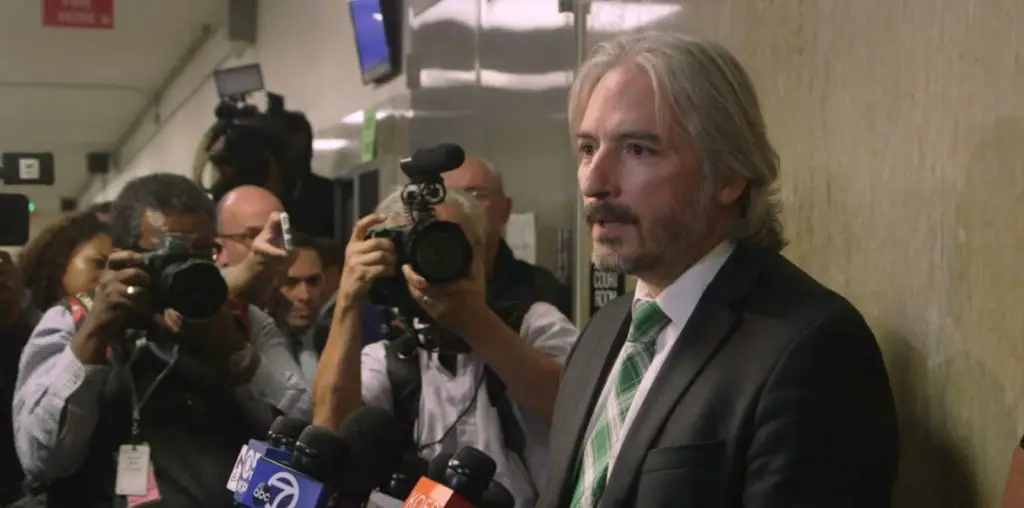
I still remember how wide-eyed and excited I was when I attended my first American Film Market (AFM) in 1992. President Bill Clinton was less than two months into his term, and I was less than two months away from getting my Bachelor’s degree. As I entered the main floor, I was immersed in a zoo of overpriced Italian suits, snakeskin boots and naive wannabe filmmakers, who were ripe to get screwed by distributors. I remember approaching a self-proclaimed “big-shot” distributor and asking him how long his contracts with filmmakers were. He just smirked and said, “forty years, kid.” Forty years? I was twenty-four at the time, and all I could think about is if I had a film and signed with him today, I’d be a few months away from retirement when I got the rights to my film back. The experience was the first time I realized how badly filmmakers actually get screwed. It was a daunting and depressing moment that will forever be tattooed in my mind.
This brings me to today’s topic: How not to get screwed in your distribution contract.
Over the years, I’ve been screwed heartily by distributors (on things I produced) so, when I started my little international distribution/sales company, Edward Stencel and I took a vow to always offer very fair-pro-filmmaker contracts. Since both of us are filmmakers, the last thing we set out to do is to screw our own kind. Thus, here’s a few key points you should be aware of so you don’t get that “freshly-screwed feeling” before the ink dries from the pen you used to sign your film away.
Advance Payments
Getting an advance on an independent film these days has gone the way of the woolly mammoth and legwarmers. Even if you have a solid cast and a multi-million dollar budget, advances are hard to come by. If you demand an advance, just know it will probably be the last check you will ever see. This is because most distributors are afflicted with an inability to pay you a penny above the advance money they shelled out to you, because in their minds they already paid you for your film.
Money Guarantees (MG’s)
Money guarantees from independent distribution companies are usually nothing more than a piece of paper to get filmmakers to sign with them. Most distributors are well aware of the fact your film is never going to generate the income needed to fulfill the MG. They also know if they told you the truth, you would have never signed with them in the first place. So, once you complain about not getting paid your MG, your distributor will release the rights of your film back to you, instead of paying you the money they guaranteed.
Sales Projections
Swallow a pound of salt before you read or hear sales projections from a company trying to sign your film. I’ve personally lost films before because I was too honest. When you tell a filmmaker their $600,000 film would be lucky to recoup $120,000 in today’s marketplace, that filmmaker runs away. They’d obviously rather hear someone say it’s going to make “$3 million easy.” In fact, a filmmaker friend of mine once told me her previous distributor claimed her little $200,000 film would sell 2 million DVD’s. The only thing crazier than that boldface lie is my friend actually believed him.
Cross-Collateralization
Do not allow cross-collateralization to occur. This means your distributor can’t charge off losses from their other titles onto your title. Your film should have its own accounting, and your distributor should only charge you costs that you’ve agreed to.
Single Contract Packaging of Several Films
This one may make your stomach turn, so if you have Pepto-Bismol or Tums handy, get them ready…What a lot of fiercely unethical film distributors do is sell an army of films to one entity at a painfully low price, which forces the filmmakers to get screwed beyond belief while the distributor banks a big fee.
Here’s how it works:
The distributor signs 100 indie films, and then builds in outrageous administrative fees of $100,000-$250,000 into each film. Meaning, the distributor must first recoup these ridiculous fees in full, before they are legally obliged to pay the filmmakers their profits. So basically filmmakers are giving away the first $100,000-$250,000 in sales of their film to their distributor, plus their distributor will take their sales percentage on top of their administrative fees.
If that doesn’t want to make you swallow a bottle of Pepto-Bismol, this will…
Then the distributor takes all 100 newly signed films, and sells them off to one entity for $1,000 per film. ($100,000 total). Since each filmmaker owes the distributor the first $100,000-$250,000 of their film’s sales, the $100,000 payment from the entity buying the films goes directly to the distributor. In the end, each filmmaker is still $99,000-$249,000 away from seeing dollar one, while the distributor pockets a cool $100,000. It’s sick, I know. Thus, make sure if your film is included in large package sale, it has its own contract and is not lumped into a single contract with 99 other films.
Term Lengths
The length of a contract truly depends on what your distributor gives you upfront. In the event your distributor pays you an advance, they’ll want the rights to your film for 10-25 years. However, if they’re not paying you an advance, 3-7 years is more reasonable. But, there’s also something tricky about term lengths you should clearly understand. These are the length of time your distributor has the right to your film – not the length of time they can sign your film away to another entity. An explanation, let’s say your distributor has your rights for Germany until August 14, 2010. On August 13, 2010, they can sell your rights to Germany for 10 years. Thus, you may be out of a contract with your distributor on August 14, 2010 but your film rights in Germany are sold until August 14, 2024. In cases like this, your distributor is still on the hook for making sure you get paid for that last-minute deal, even if you’re film is no longer under contract with him or her. But of course, if you still owe your distributor money for administrative fees, the money from that last-minute deal will go straight into their pocket.
Payment Schedules
Distributors will usually pay 30-60 days after the end of each quarter. That is of course, if they ever pay you.
State Laws To Be Governed By
Regardless if you made your film in Kansas, Bombay or Brussels, it’s always a good idea to agree to have your contract governed under the laws of the State of California or the State of New York. I’m not saying this is because my company is in wonderfully sunny Los Angeles, I’m saying this because California and New York are the two places on the planet that have thousands of precedents from previous cases, which will clearly help your argument. Thus, taking a film related lawsuit to a court in Des Moines, Iowa (even if you are from Des Moines and made the film there) is far riskier than trusting the Meccas of filmmaking (California and New York) with your dispute.
Market Costs
Every distributor has them, just make sure you clearly understand how much they are. These costs are related to the cost of going to film markets, not marketing. Market costs are usually included in the “administrative fees,” but you should clarify that.
Advertising Costs
Make your distributor place a cap on how much they can charge you for advertising. If you don’t, every time they get close to having to pay you, they’ll tack on more advertising fees.
Sales Reports
Regardless of what your distributor agrees to, most of them will only generate a sales report for you after sales are initiated on your film. Since most indie films either a) never get a sale or b) get a sale several months or more than a year after signing the deal, don’t be freaked out if you don’t get a sales report for a while. Besides, what’s the point of sending you a sales report with no sales in it? It’d be like giving you a Big Mac with no meat in it. However, once you get your first sale, you should get regular sales reports.
Percentages
Here’s a simple rule of thumb: The bigger the budget, the lower the sales percentage. For example, an international distributor will usually get 8% -12% of sales on a budget of $50 million, but they’ll command 20%-25% of sales on films with budgets ranging from a few hundred thousand dollars to a few million dollars. On occasion, you may be able to negotiate having your distributor take a much higher percentage (30%-35%), in exchange for not charging you administrative fees. But, getting someone to agree to waive his or her administrative fees these days is quite unlikely. This is because current indie film sales are not high enough for the distributor to cover their overhead costs solely by their cut of sales.
The bottom line with distribution contracts is that they’re only as valid as the intentions of the distributor giving them to you. The key is to go into every contract negotiation with your eyes open, your ears perked, and your hand armed with a pen ready to sign – if and only if you get yourself a fair contract.
Simply put, when you deal with most distributors over their contracts, imagine yourself being a gazelle thrown into a den of hungry lions. They’ll tear you apart given the chance, but you’re no ordinary gazelle. You’re “bionic,” and bionic gazelles will escape the deadly clutches of a bad distribution contract any day of the week.
Until next Tuesday, thanks for lending me your eyes.


Wow, just Wow. I can say this…I am so glad I never signed my film to any distributor. I’ll stick with self distribution if it kills me. (and it probably will)
WOW!! sounds very familiar!
we are in this mine field at the moment.
on Pre-production for the 2nd feature now. Will be a lot more savy next time : )
Very interesting. And to think, these young filmmakers of the next generation are going to have to deal with this complicated distribution process.
Great writing. Clear, concise, level-headed. Thank you.
This is a good summary of what can go wrong. One thing you might want to add is packaging costs if the deal includes DVD- often filmmakers have no idea they will never see a dime from their DVD after the fancy wrapping gets put on. All the more reason for filmmakers to go into the process educating themselves and being aware that there are many other options these days besides a straight distro deal.
Well done Hammad, keep up the fine job.